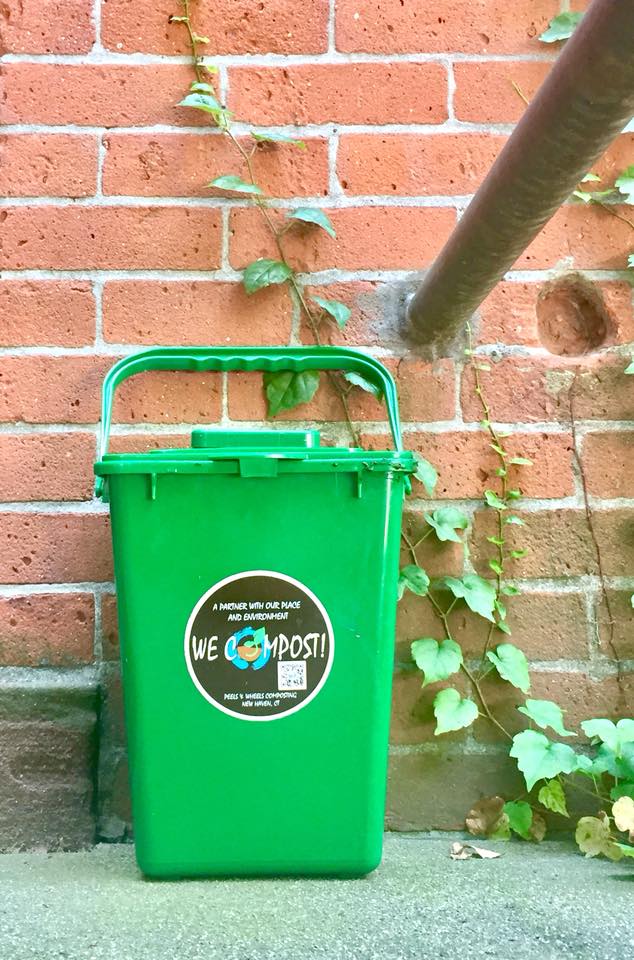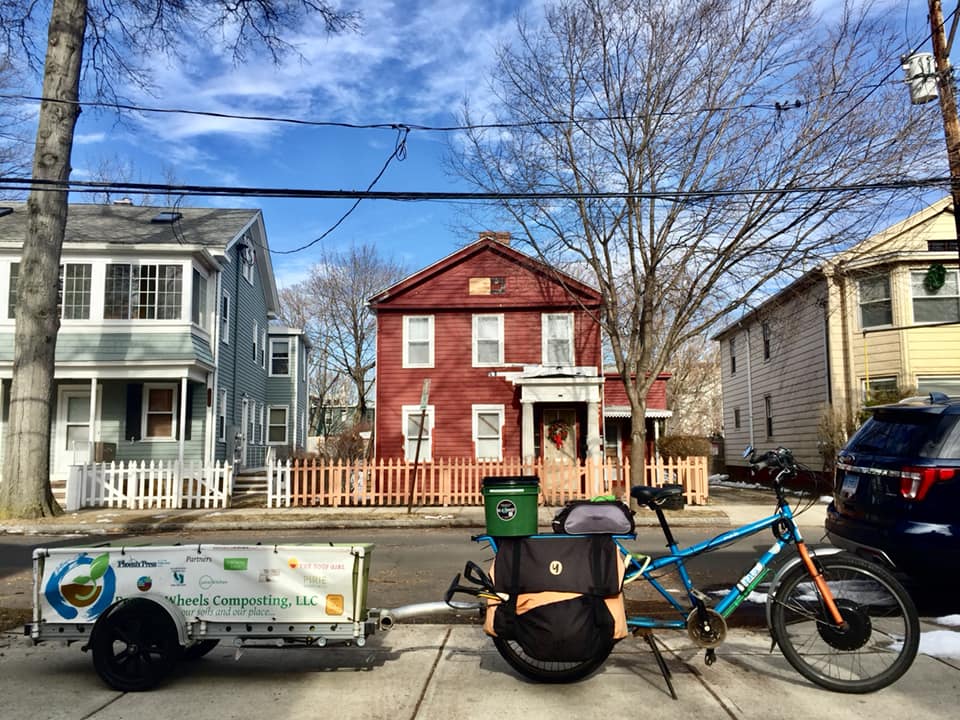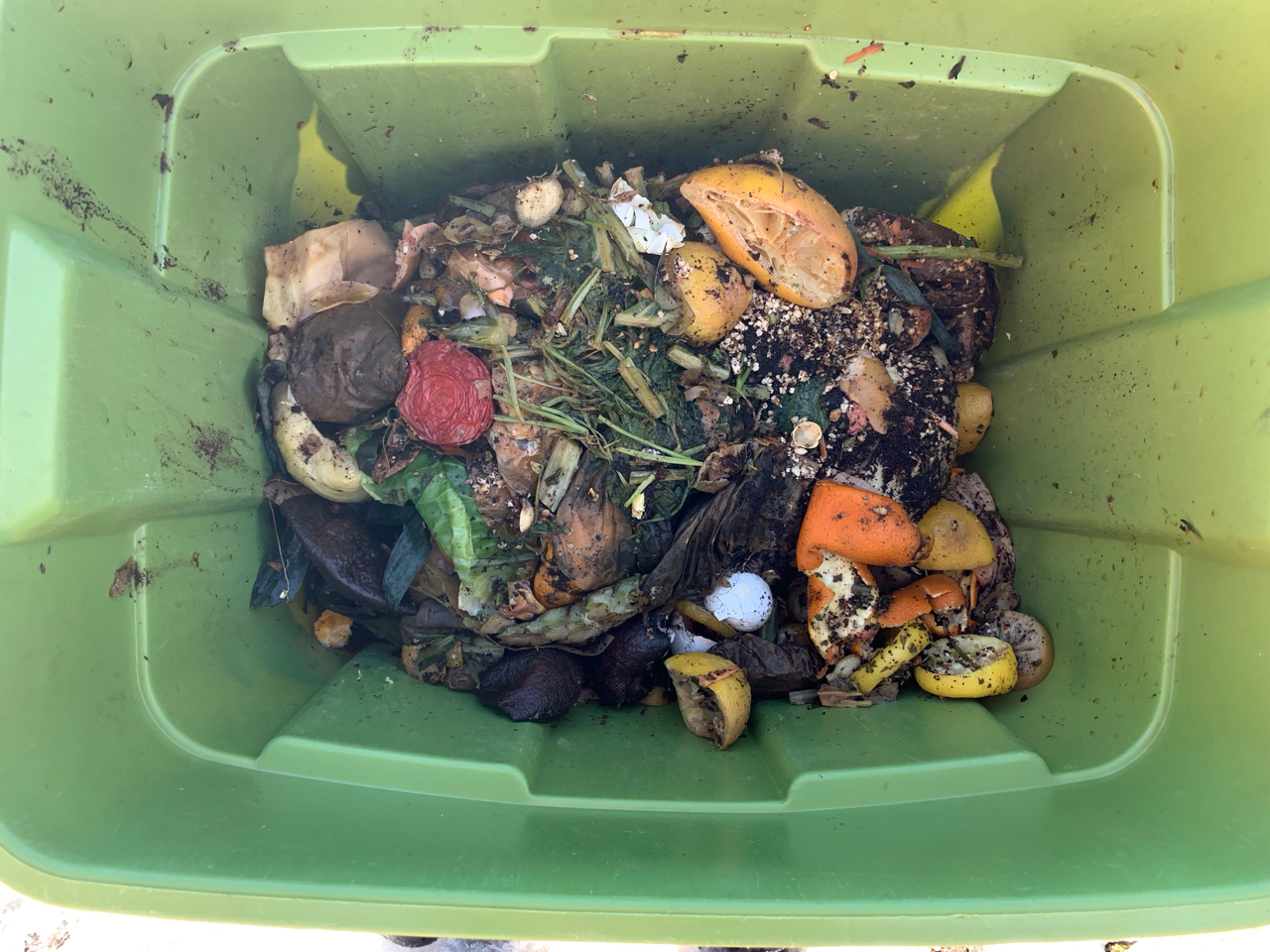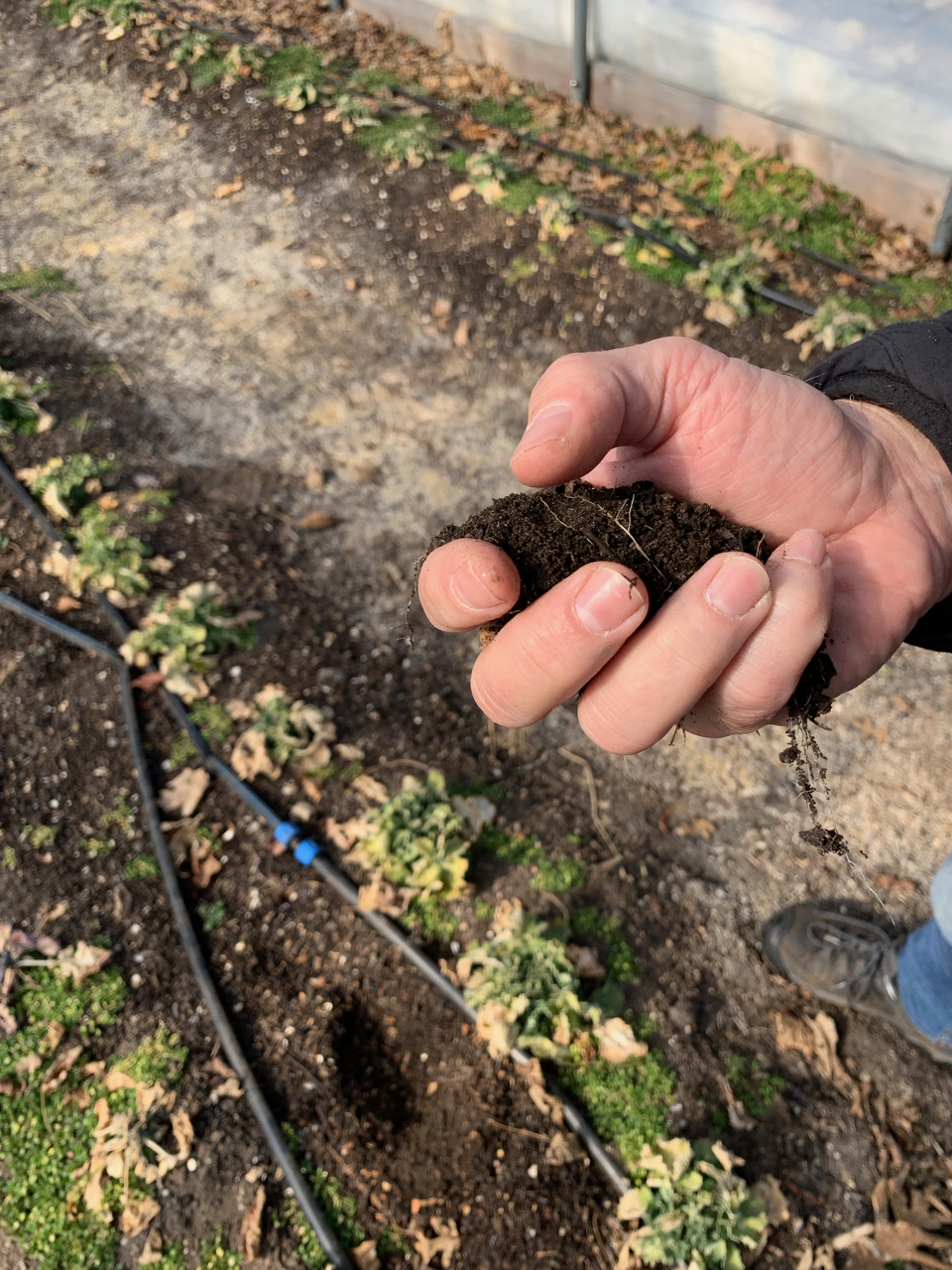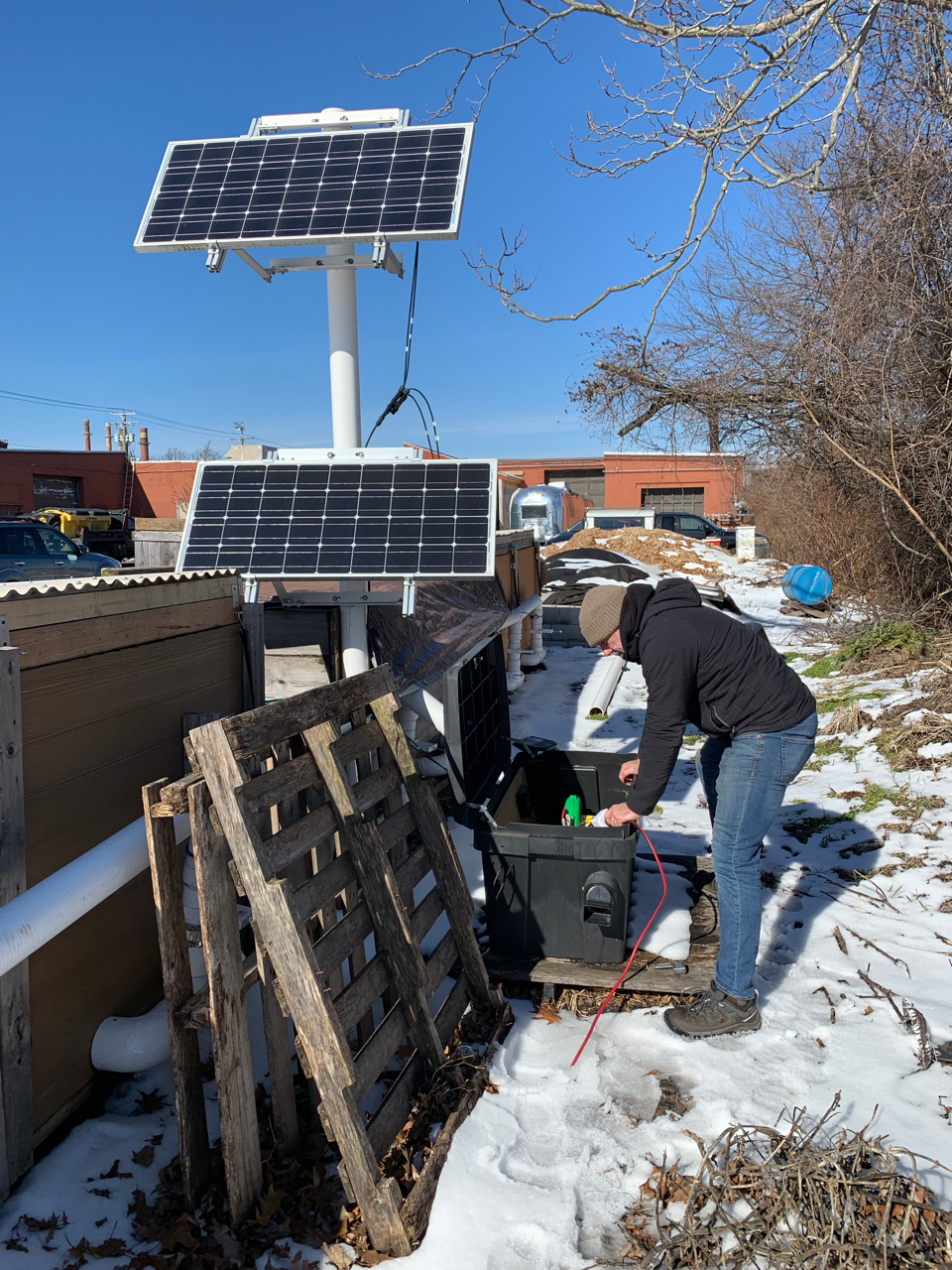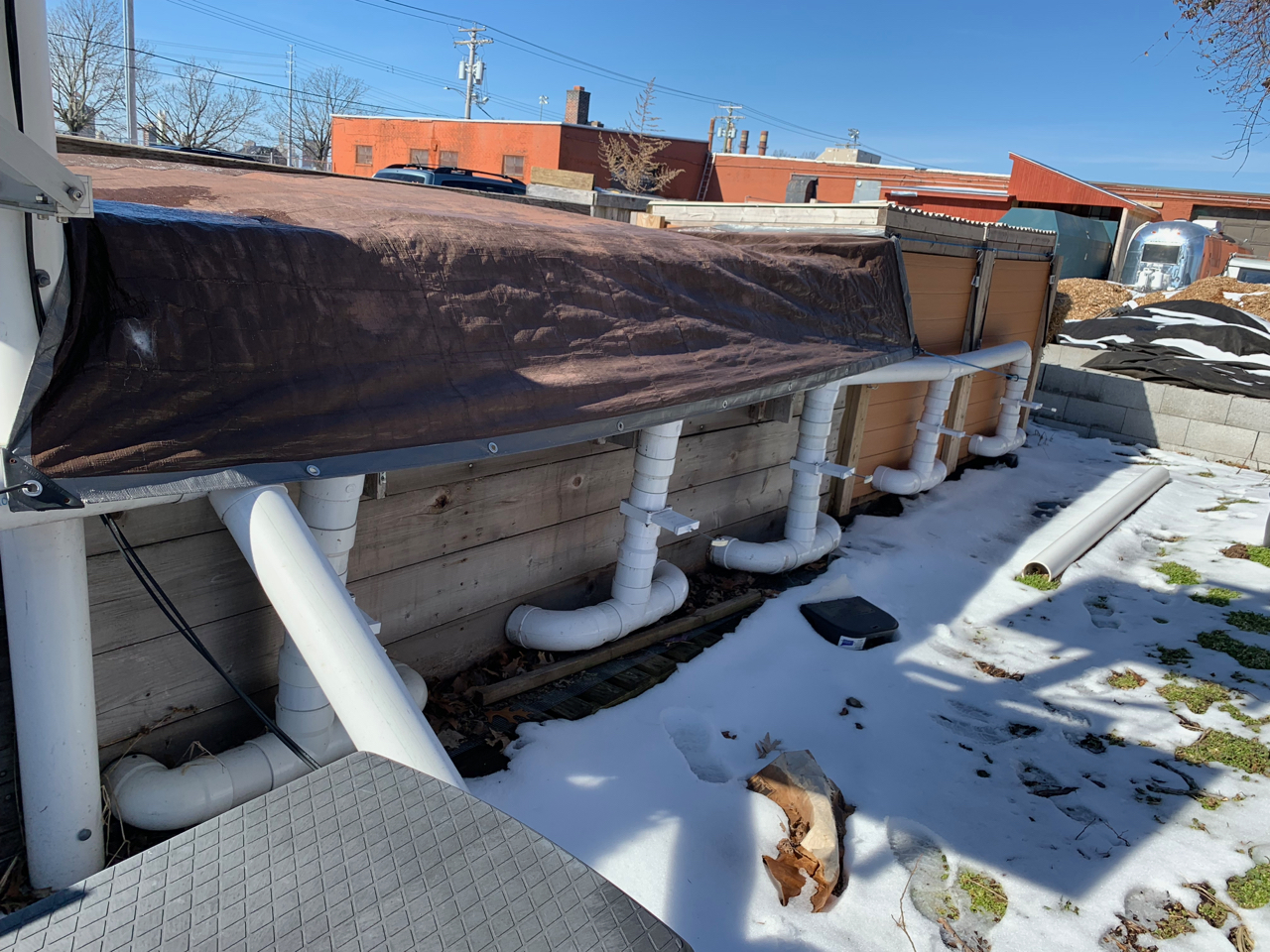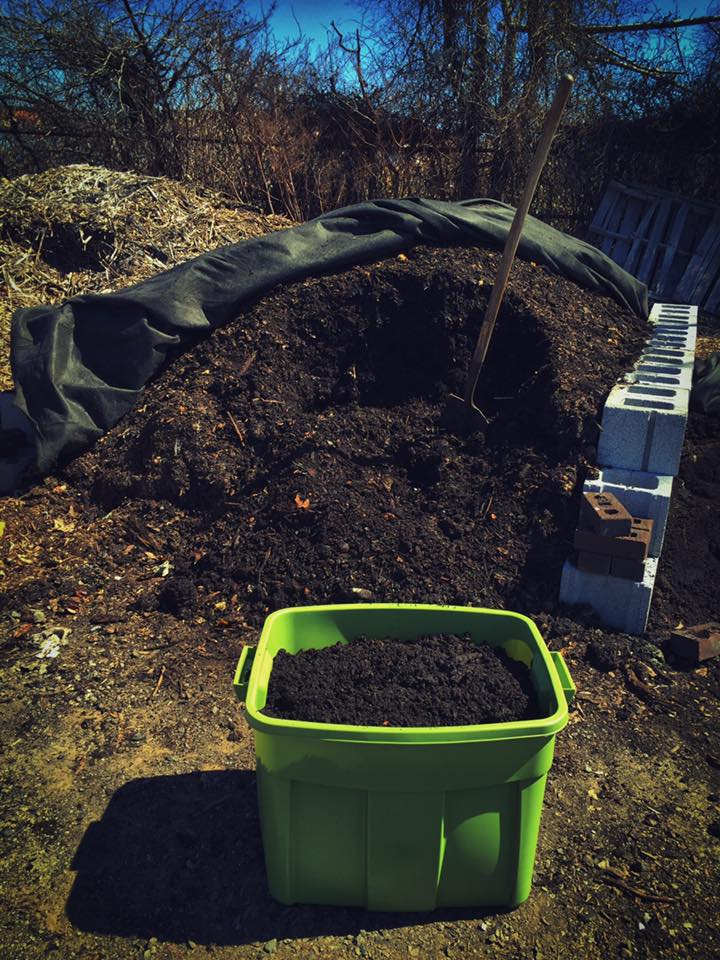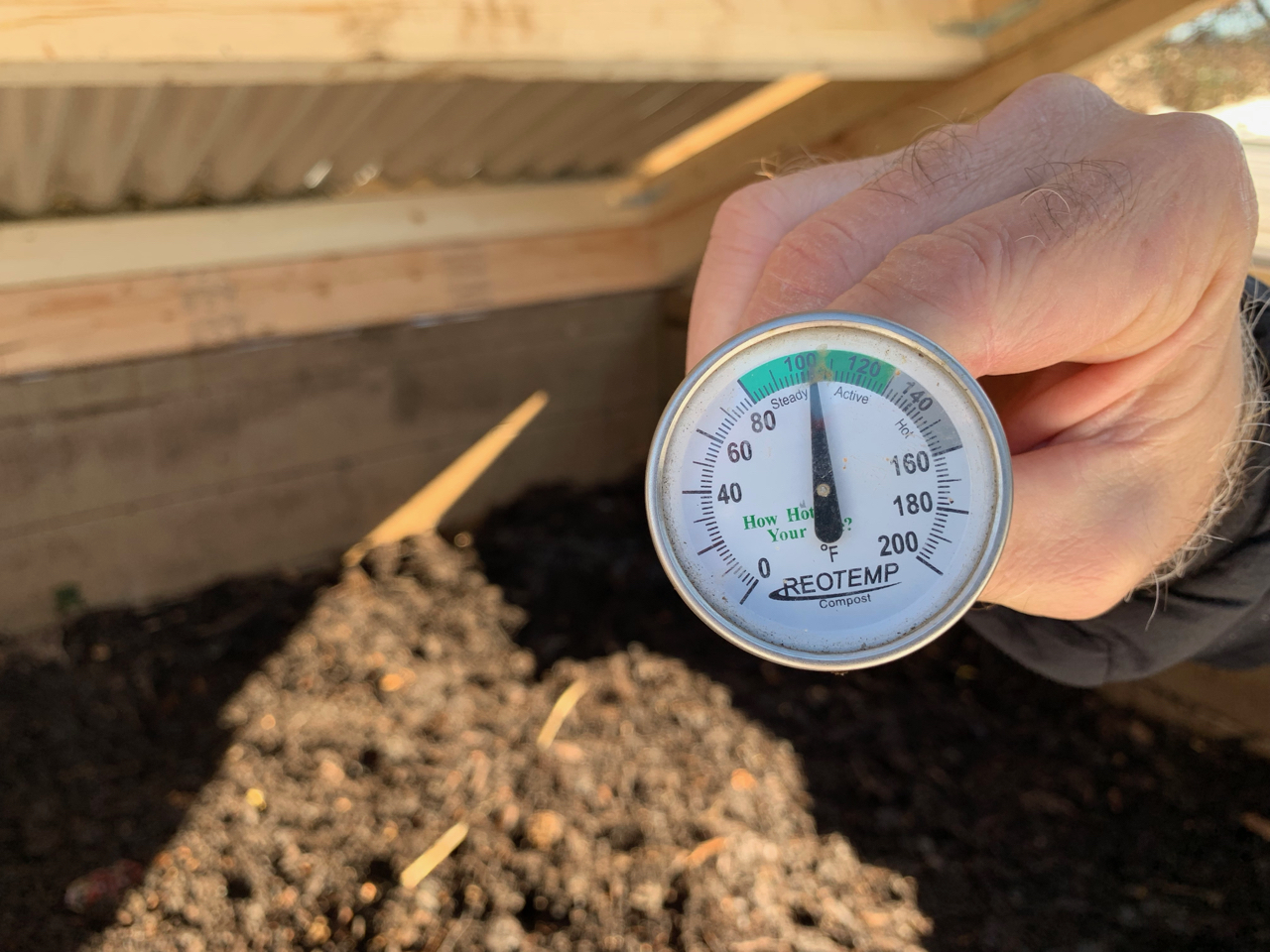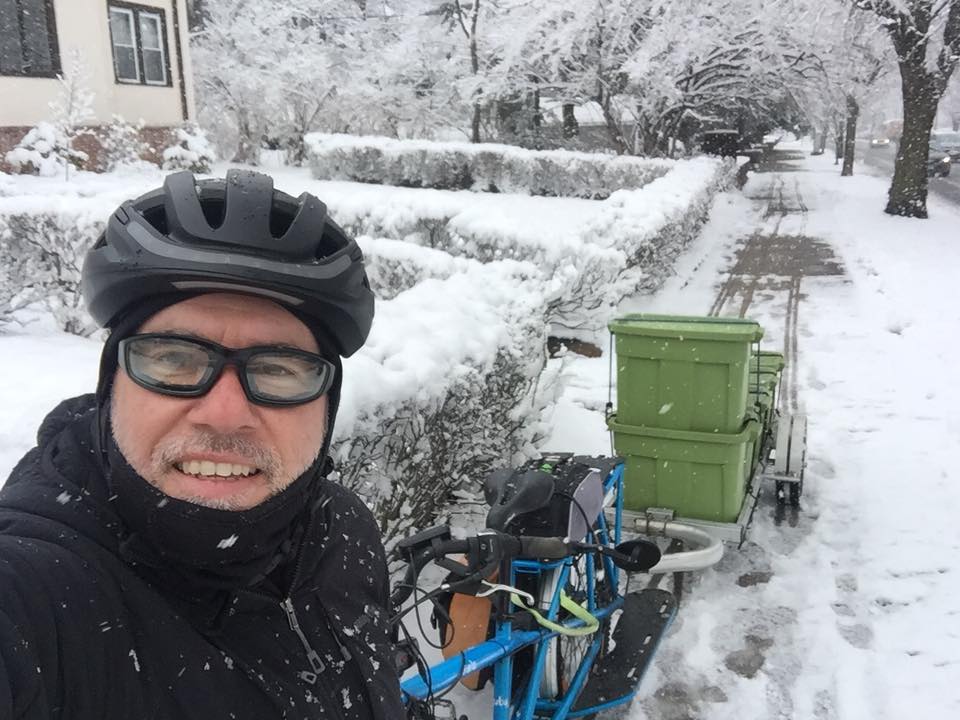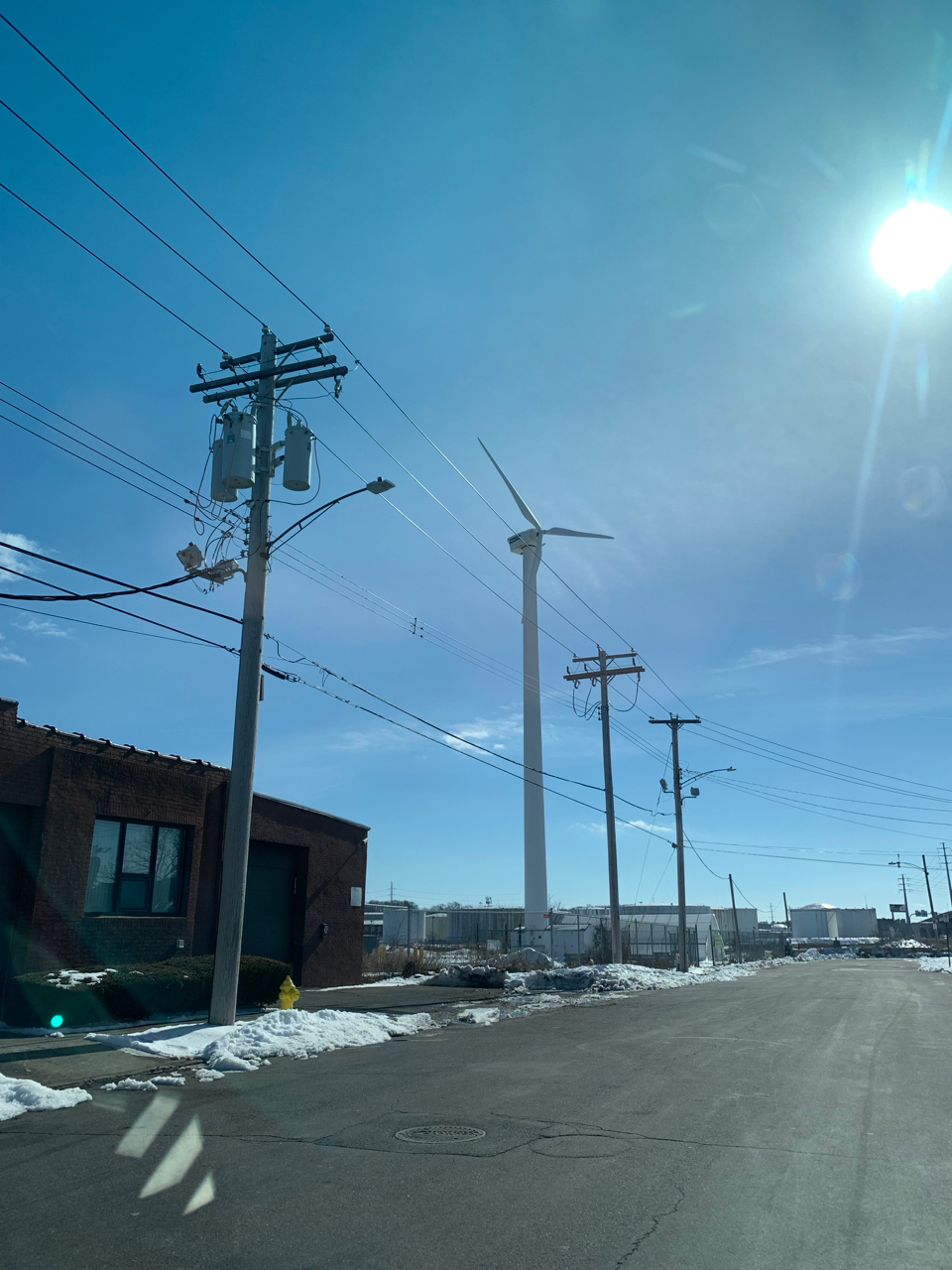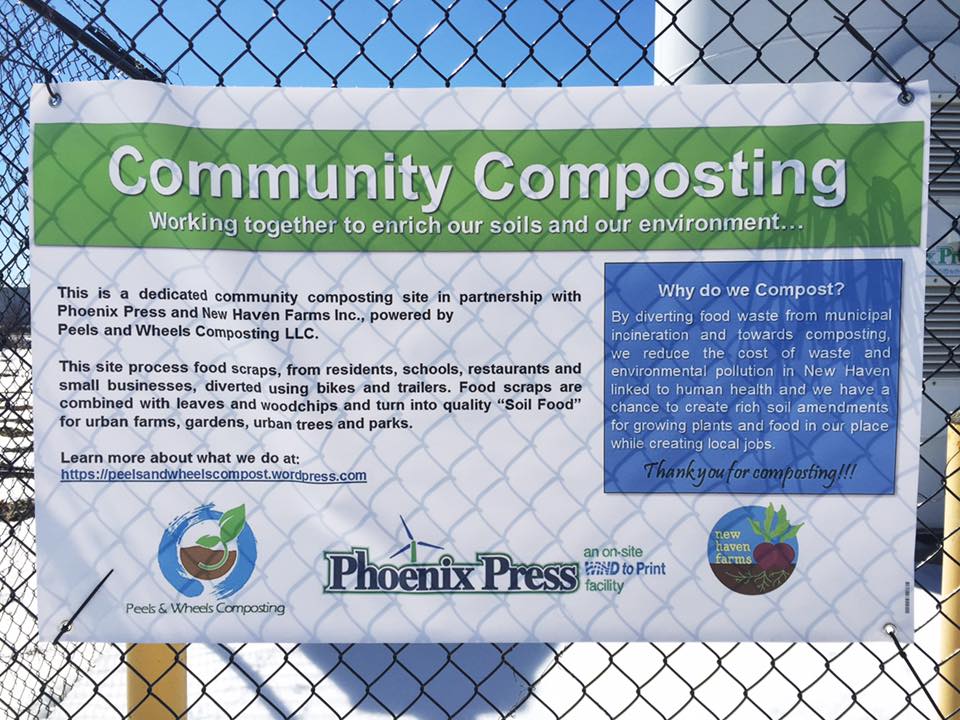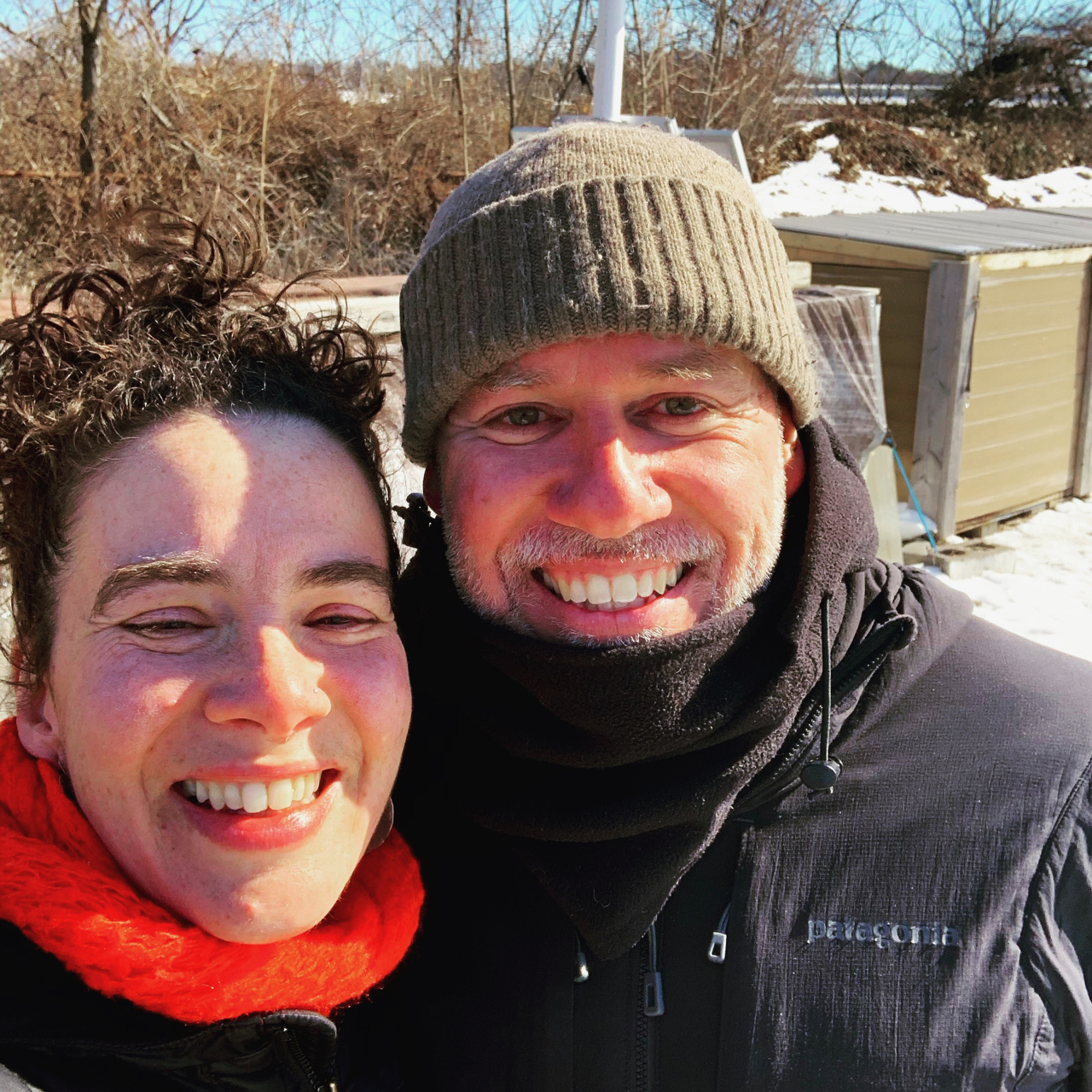Growing Compost in the City
Domingo Medina, owner of Peels & Wheels Composting stands by some of his solar powered compost bins, contributing to “a corner of sustainability” transforming an asphalt parking lot he shares with Phoenix Press and New Haven Farms under interstate 95 in New Haven, CT.
“This is where i feel that I am part of nature. We are mostly takers, we always take from our environment we always take from our surroundings, but this is a way that i feel that I am part of nature, because I contribute to the regeneration to the resiliency of our place by enhancing our soil.” - Domingo Medina
Environmentalist Domingo Medina left his conflicted homeland in Venezuela and brought his knowledge for natural resource management to his adopted home of New Haven, CT. Through his business Peels & Wheels Composting Domingo and a small crew are biking the city and picking up food waste from homes and restaurants around town. The Kitchen scraps are brought to their outdoor composting site shared with the local group, New Haven Farms, in the Phoenix Press ( a wind powered printing press) parking lot, at the edge of Long Island Sound just under Interstate 95. Domingo, inspired by similar businesses across the country has worked out an efficient process for diverting trash from incinerators, and turning it into compost or black gold. This nutrient rich compost is then shared with his customers and local urban farming groups who use it to grow nutritious, free produce for mostly low income communities around the city. Since 2014, they’ve created 6 well paid part-time jobs and diverted 140,000 pounds of waste from being burned by the city; the equivalent in reducing air pollution of getting 230 cars off the road.
According to Peels & Wheels, the City of New Haven, CT (like many cities) pays $85 a ton to haul trash to incinerators in near by towns to be burned, which releases toxic pollutants into the air and sometimes even area water (check out their “reasons to compost in New Haven graphic below). To help mitigate the impacts of this process, Peels and Wheels currently picks up food scraps from almost 150 families and a number of restaurants in the New Haven, CT area. Customers are given a green compost bin to hold food scraps in, and they pay $7.50 a pick up to have it hauled away and professionally composted.
Above, Domingo checks the solar powered blower that pumps air into the 8 compost bins through a series of pvc pipes, eliminating the need for physically turning the compost to help it work its magic in decomposing. The full process to turn food waste into valuable compost takes 60 to 90 days depending on the outside temperature. The first 30 days, food scraps are kept in each of the 4’ x 4’ x4’ bins, where the internal temperature reaches 120 degrees, safely and effectively facilitating the decomposition of food, and killing any pathogens or harmful bacterias such as e-coli or salmonella. Then the compost is moved to a tarp covered pile where it cures for 30 to 60 days more, and then is ready for spreading on a farm or garden.
To see all of this in practice, host Tagan Engel met Domingo out at the snow covered compost site at New Haven Farms on a sunny February day to check out his set up and hear about what’s motivating this man to spend his time caring for other people’s trash.
Listen to the full show above, or wherever you get your podcasts.
To learn more or become a customer go to www.pwcomposting.com . Also, check out the great work of New Haven Farms, and if you are local and have wondered what’s up with that giant wind turbine right off of 95 as you enter New Haven, check out Phoenix Press, where it powers their printing company!
Ep. 50 — The Table Underground — Feb 22, 2019


